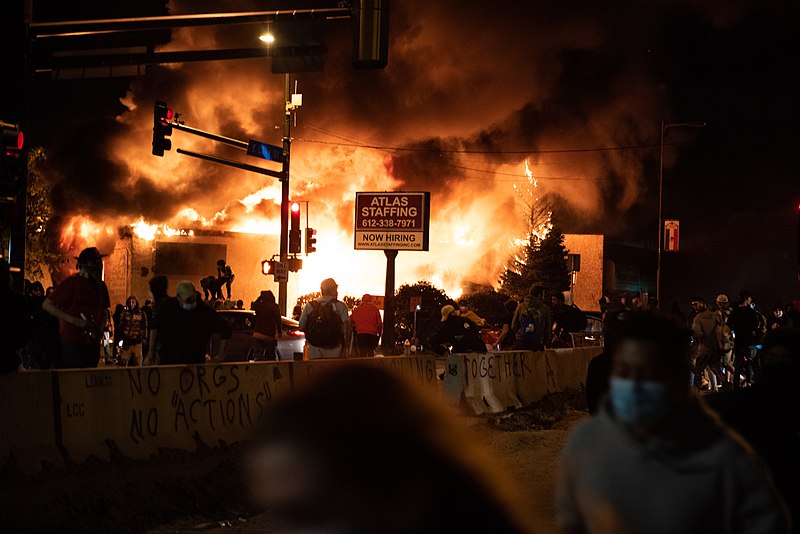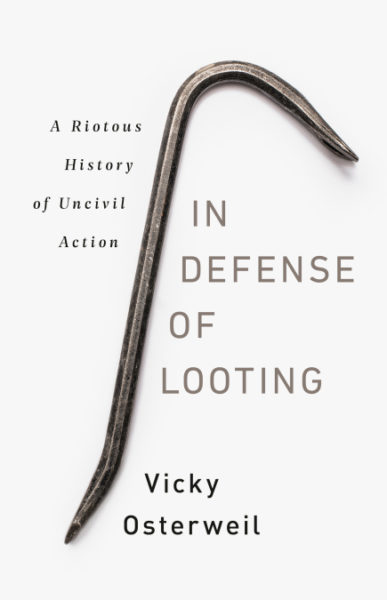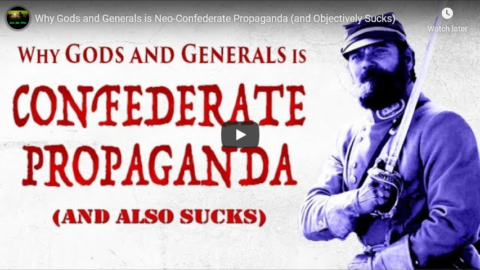The Great War
Published 29 Aug 2020Sign up for Curiosity Stream and get Nebula bundled in: https://curiositystream.com/thegreatwar
In the summer of 1920 the new Poland under Josef Pilsudksi stood with their backs to Warsaw against the Red Army. The Bolsheviks had advanced in the North and in the South and some of the Soviet leadership wanted to carry the revolution into Western Europe.
» SUPPORT THE CHANNEL
Patreon: https://www.patreon.com/thegreatwar» OUR PODCAST
https://realtimehistory.net/podcast – interviews with World War 1 historians and background info for the show.» BUY OUR SOURCES IN OUR AMAZON STORES
https://realtimehistory.net/amazon *
*Buying via this link supports The Great War (Affiliate-Link)» SOURCES
Borzecki, Jerzy. The Polish-Soviet Peace of 1921 and the Creation of Interwar Europe (New Haven and London: Yale University Press, 2008)
Engelstein, Laura. Russia in Flames (Oxford University Press, 2017).
Lehnstaedt, Stephan. Der Vergessene Sieg. Der Polnisch-Sowjetische Krieg 1919-1921 und die Entstehung des modernen Osteuropa (CH Beck, 2019)
Davies, Norman. White Eagle Red Star (Random House, 2003 (1972)
Böhler, Jochen. Civil War in Central Europe, 1918-1921 (Oxford University Press, 2019)
Hux Reed, Vivian, ed. An American in Warsaw (University of Rochester Press, 2018)» MORE THE GREAT WAR
Website: https://realtimehistory.net
Instagram: https://instagram.com/the_great_war
Twitter: https://twitter.com/WW1_Series
Reddit: https://reddit.com/r/TheGreatWarChannel»CREDITS
Presented by: Jesse Alexander
Written by: Jesse Alexander
Director: Toni Steller & Florian Wittig
Director of Photography: Toni Steller
Sound: Toni Steller
Editing: Jose Gamez, Toni Steller
Motion Design: Philipp Appelt
Mixing, Mastering & Sound Design: http://above-zero.com
Maps: Daniel Kogosov (https://www.patreon.com/Zalezsky)
Research by: Jesse Alexander
Fact checking: Florian WittigChannel Design: Alexander Clark
Original Logo: David van StepholdContains licensed material by getty images
All rights reserved – Real Time History GmbH 2020
August 30, 2020
Battle of Warsaw – Turning Point of Polish-Soviet War I THE GREAT WAR 1920
“When I use the word looting, I mean the mass expropriation of property, mass shoplifting during a moment of upheaval or riot. That’s the thing I’m defending.”
An NPR interview with author Vicky Osterweil about her new book In Defense of Looting, published last week:
During the uprisings of this past summer, rioting and looting have often gone hand in hand. Can you talk about the distinction you see between the two?
“Rioting” generally refers to any moment of mass unrest or upheaval. Riots are a space in which a mass of people has produced a situation in which the general laws that govern society no longer function, and people can act in different ways in the street and in public. I’d say that rioting is a broader category, in which looting appears as a tactic.
Often, looting is more common among movements that are coming from below. It tends to be an attack on a business, a commercial space, maybe a government building — taking those things that would otherwise be commodified and controlled and sharing them for free.
Can you talk about rioting as a tactic? What are the reasons people deploy it as a strategy?
It does a number of important things. It gets people what they need for free immediately, which means that they are capable of living and reproducing their lives without having to rely on jobs or a wage — which, during COVID times, is widely unreliable or, particularly in these communities is often not available, or it comes at great risk. That’s looting’s most basic tactical power as a political mode of action.
It also attacks the very way in which food and things are distributed. It attacks the idea of property, and it attacks the idea that in order for someone to have a roof over their head or have a meal ticket, they have to work for a boss, in order to buy things that people just like them somewhere else in the world had to make under the same conditions. It points to the way in which that’s unjust. And the reason that the world is organized that way, obviously, is for the profit of the people who own the stores and the factories. So you get to the heart of that property relation, and demonstrate that without police and without state oppression, we can have things for free.
Importantly, I think especially when it’s in the context of a Black uprising like the one we’re living through now, it also attacks the history of whiteness and white supremacy. The very basis of property in the U.S. is derived through whiteness and through Black oppression, through the history of slavery and settler domination of the country. Looting strikes at the heart of property, of whiteness and of the police. It gets to the very root of the way those three things are interconnected. And also it provides people with an imaginative sense of freedom and pleasure and helps them imagine a world that could be. And I think that’s a part of it that doesn’t really get talked about — that riots and looting are experienced as sort of joyous and liberatory.
[…]
What would you say to people who are concerned about essential places like grocery stores or pharmacies being attacked in those communities?
When it comes to small business, family owned business or locally owned business, they are no more likely to provide worker protections. They are no more likely to have to provide good stuff for the community than big businesses. It’s actually a Republican myth that has, over the last 20 years, really crawled into even leftist discourse: that the small business owner must be respected, that the small business owner creates jobs and is part of the community. But that’s actually a right-wing myth.
A business being attacked in the community is ultimately about attacking like modes of oppression that exist in the community. It is true and possible that there are instances historically when businesses have refused to reopen or to come back. But that is a part of the inequity of the society, that people live in places where there is only one place where they can get access to something [like food or medicine]. That question assumes well, what if you’re in a food desert? But the food desert is already an incredibly unjust situation. There’s this real tendency to try and blame people for fighting back, for revealing the inequity of the injustice that’s already been formed by the time that they’re fighting.
H/T to Amy Alkon for the link.
Update: Ann Althouse also commented on the NPR interview:
I don’t know if other people in “the movement” are happy to see that idea spoken aloud [that looters and rioters have “always been a part of our movement”]. I’ve been hearing that there are 2 groups of people — the peaceful protesters and these mysterious other people, who, I’ve noted, the journalists don’t seem to care to identify and investigate. Osterweil is saying these are not 2 different groups. It’s one movement, and it’s been going on for a long time.
[…]
That seems to present looting as street theater with a message. It makes an argument. A terrible argument. We’ve heard that argument in words many times over the years, and most Americans reject it. We want to work and build wealth and enjoy our lives and we want the great mutual benefits of hard work and wealth. Osterweil’s looting is a switch from making the argument against property in words and to speak with actions — the destruction of property. But that doesn’t make the argument more convincing! It’s a nasty tantrum thrown because you can’t convince people with your ideas. Ironically, fortunately, it makes the argument for the other side.
Andrew Sullivan – “… let’s be frank about this and call this by its name: this is very Weimar. The center has collapsed.”
In the latest Weekly Dish, Andrew Sullivan finds himself in agreement with Marcus Aurelius: “The object of life is not to be on the side of the majority, but to escape finding oneself in the ranks of the insane.”

A building burning in Minneapolis following the death of George Floyd.
Photo by Hungryogrephotos via Wikipedia.
I don’t think I’m the only one, as even the Democrats seem now to realize. And this massive blindspot is not hard to understand. When a political party finds itself so wedded to a new and potent ideology it cannot call out violence when it sees it, then it is walking straight into a trap. When the discourse on the left has become one in which scholars and editors and Tweeters vie with one another to up the ante on how inherently evil America has always been, redescribe it as a slaveocracy, and endorse racist books that foment the most egregious stereotypes about “whiteness”, most ordinary people, who love their country and are mostly proud of its past, will rightly balk. One of the most devastating lines in president Trump’s convention speech last night was this: “Tonight, I ask you a very simple question: How can the Democrat Party ask to lead our country when it spends so much time tearing down our country?” A cheap shot, yes. But in the current context, a political bullseye.
The key theme of the RNC was reminding people of the American narrative that once was. Yes, it was unbelievably vulgar. Yes, it looked like a cross between a sophisticated CGI video-game and a crude car dealer ad with a dollop of Leni Riefenstahl. But it was extremely effective. To see that, you have to remove your frontal cortex and put it in a jar, accept that it’s all going to be a series of lies so massive they stupefy us into stutters, and then cop the feels. Pence gave us a vision of America that was a souped up Disney special from the early 1960s — from Fort McHenry no less. And look at the icons Trump invoked: Wyatt Earp, Annie Oakley, Davy Crockett, and Buffalo Bill. You can mock. But in the midst of a culture being redescribed by the left as a form of foul and relentless “white supremacy”, and in a moment of arson and rioting, it felt like a kind of balm.
All this reassurance played out against a backdrop of Kenosha, which was burning, and Minneapolis, where a suicide led to a bout of opportunistic looting, and Washington DC, where mobs of wokesters went through the city chanting obscenities, invading others’ spaces, demanding bystanders raise fists in solidarity, with occasional spasms of violence. These despicable fanatics, like it or not, are now in part the face of the Democrats: a snarling bunch of self-righteous, entitled bigots, chanting slogans rooted in pseudo-Marxist claptrap, erecting guillotines — guillotines! — in the streets as emblems of their agenda. They are not arguing; they are attempting to coerce. And liberals, from the Biden campaign to the New York Times, are too cowardly and intimidated to call out these bullies and expel them from the ranks.
[…]
And let’s be frank about this and call this by its name: this is very Weimar. The center has collapsed. Armed street gangs of far right and far left are at war on the streets. Tribalism is intensifying in every nook and cranny of the culture. The establishment right and mainstream left tolerate their respective extremes because they hate each other so much.
The pattern is textbook, if you learn anything from history: an economic crisis resulting in mass unemployment; the pent-up psychological disorders a long period of lockdown can and will unleash; a failure of nerve on the part of liberals to defend the values and institutions of liberal democracy, and of conservatives to keep their own ranks free of raw demagogues and bigots. But critically: a growing sense of disorder and violence and rioting as simply the background noise; and a sense that authorities do not have the strength or the stomach to restore order. What most people want in that kind of nerve-wracking instability is a figure who will come in and stamp it out. In Trump, we have someone who would happily trample any liberal democratic norm to do it. And the left seems to be all but begging him to do it — if only to prove them right.
A long time ago, I was mocked for saying that I believed that the election of Donald Trump was an extinction-level event for liberal democracy. But this is where we are. There is no place for liberal debate or dissent, just competing mobs deploying propaganda, intimidation and mutual racial hatred. Norms are trashed, from the shameful cooptation of national monuments for partisan purposes, to violating the privacy and peace of ordinary citizens because they are not in the ranks of agitators. Liberals are now illiberal; conservatives are revolutionaries. The Republican convention we are witnessing makes no pretense of even publishing a platform — all to demonstrate total and unfailing fealty to the leader whose own family is now assumed to succeed him. What about this pattern of events do we not already understand?
Why Gods and Generals is Neo-Confederate Propaganda (and Objectively Sucks)
Atun-Shei Films
Published 12 Aug 2019Like if Ken Burns and Mr. Plinkett had a baby.
Gods and Generals (2003) is a four and a half hour long epic from the director of Gettysburg (1993), chronicling the first two years of the American Civil War in the Eastern Theater from the point of view of General Stonewall Jackson. In this video essay / review, I examine how the film is an insidious piece of pro-Confederate propaganda, echoing the inaccuracies and misconceptions of the notorious Lost Cause myth.
Support Atun-Shei Films on Patreon ► https://www.patreon.com/atunsheifilms
#GodsAndGenerals #CivilWar #VideoEssayWatch our film ALIEN, BABY! free with Prime ► http://a.co/d/3QjqOWv
Reddit ► https://www.reddit.com/r/atunsheifilms
Twitter ► https://twitter.com/alienbabymovie
Instagram ► https://www.instagram.com/atunsheifilms
Merch ► https://atun-sheifilms.bandcamp.com
QotD: Capitalism
It’s entirely possible to muse on whether the cut has to be different to contain the dab dabs or summat but that’s not what is going on at all. Women will pay more for their t-shirts therefore the capitalists, the bastards, charge women more for their t-shirts. Just because they can.
The women who significantly object to this are already buying men’s version and so the bastards get to market segment. Between those who care more about money than cut – they’re paying the same as the men – and those who care more about the cut than the money are paying more. If all women cared more about the money then they wouldn’t be able to do this.
It’s exactly the same reason that causes pink razors to cost more than blue. People will pay the extra so why the hell not try it on?
Yes, this really is insisting that its women’s own fault. If some significant portion didn’t pay the extra then no one would try to charge it.
Capitalism really is very simple.
Tim Worstall, “Why Do Women Pay More For T-Shirts? Because Women Will Pay More For T-Shirts”, Continental Telegraph, 2018-05-25.







